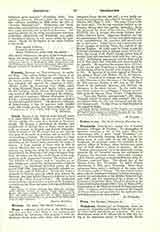

Trivet, NICHOLAS, or TREVET as he himself wrote it, b. about 1258; d. 1328. He was the son of Thomas Trevet, a judge who came of a Norfolk or Somerset family. He became a Dominican in London, and studied first at Oxford, then at Paris, where he first took an interest in English and French chronicles. Little is known of his life except that at one time he was prior of his order in London, and at another he was teaching at Oxford. He was the author of a large number of theological and historical works and commentaries on the classics, more especially the works of Seneca. A large number of these exist in MS. in various libraries, but only two appear to have been printed, one being the work by which he is chiefly remembered, the chronicle of the Angevin kings of England, the other was the last twelve books of his commentary on St. Augustine’s treatise “De civitate dei”. The full title of the former work is “Annales sex regum Angliae qui a comitibus Andegavensibus originem traxerunt”, an important historical source for the period 1136-1307, containing a specially valuable account of the reign of Edward I. Trivet also wrote a chronicle in French, parts of which were printed by Spelman, and from which Chaucer is believed to have derived the “Man of Law‘s Tale”. His theological works include commentaries on parts of the Scripture, a treatise on the Mass and some writings on Scholastic theology.
EDWIN BURTON

